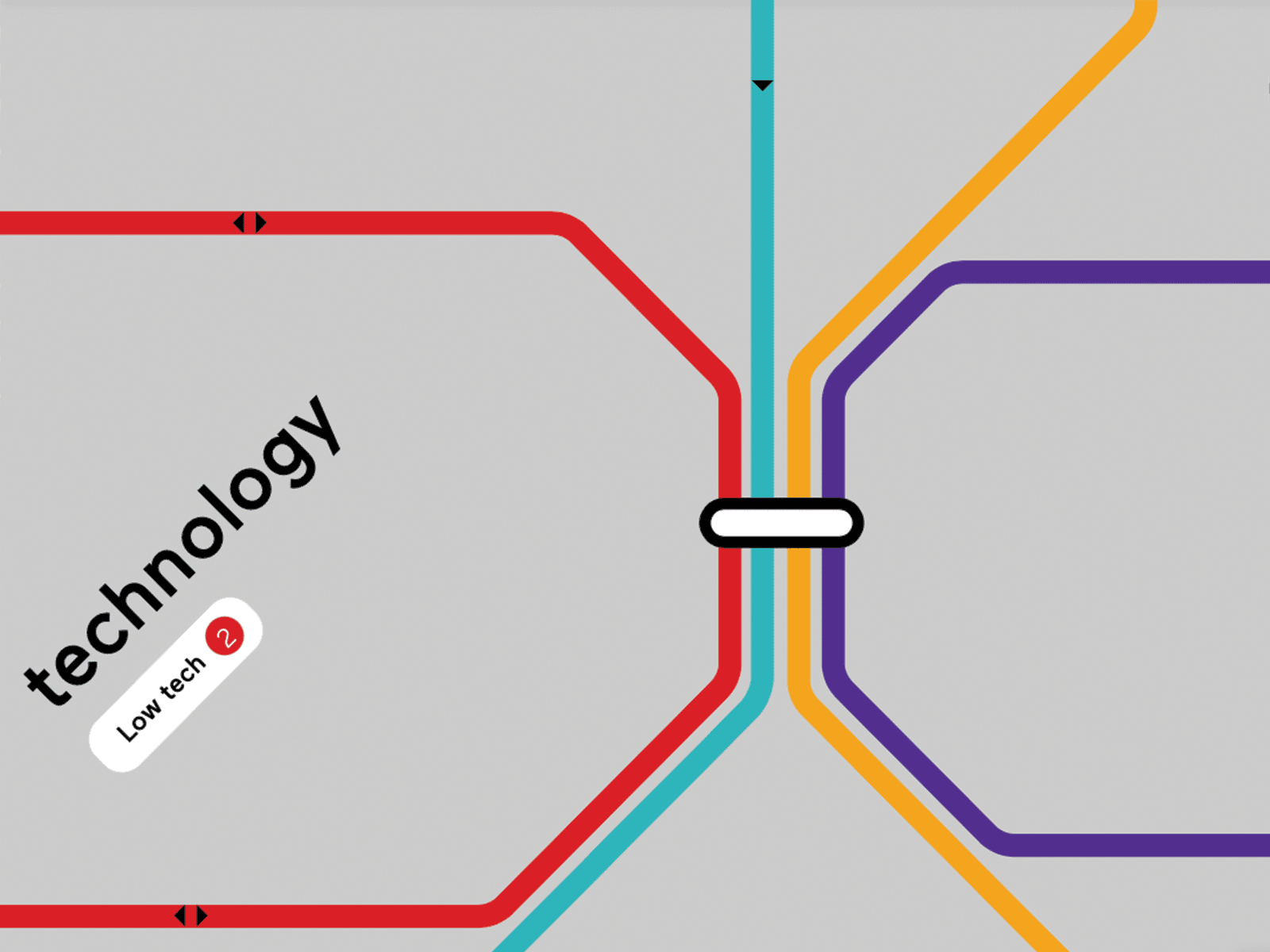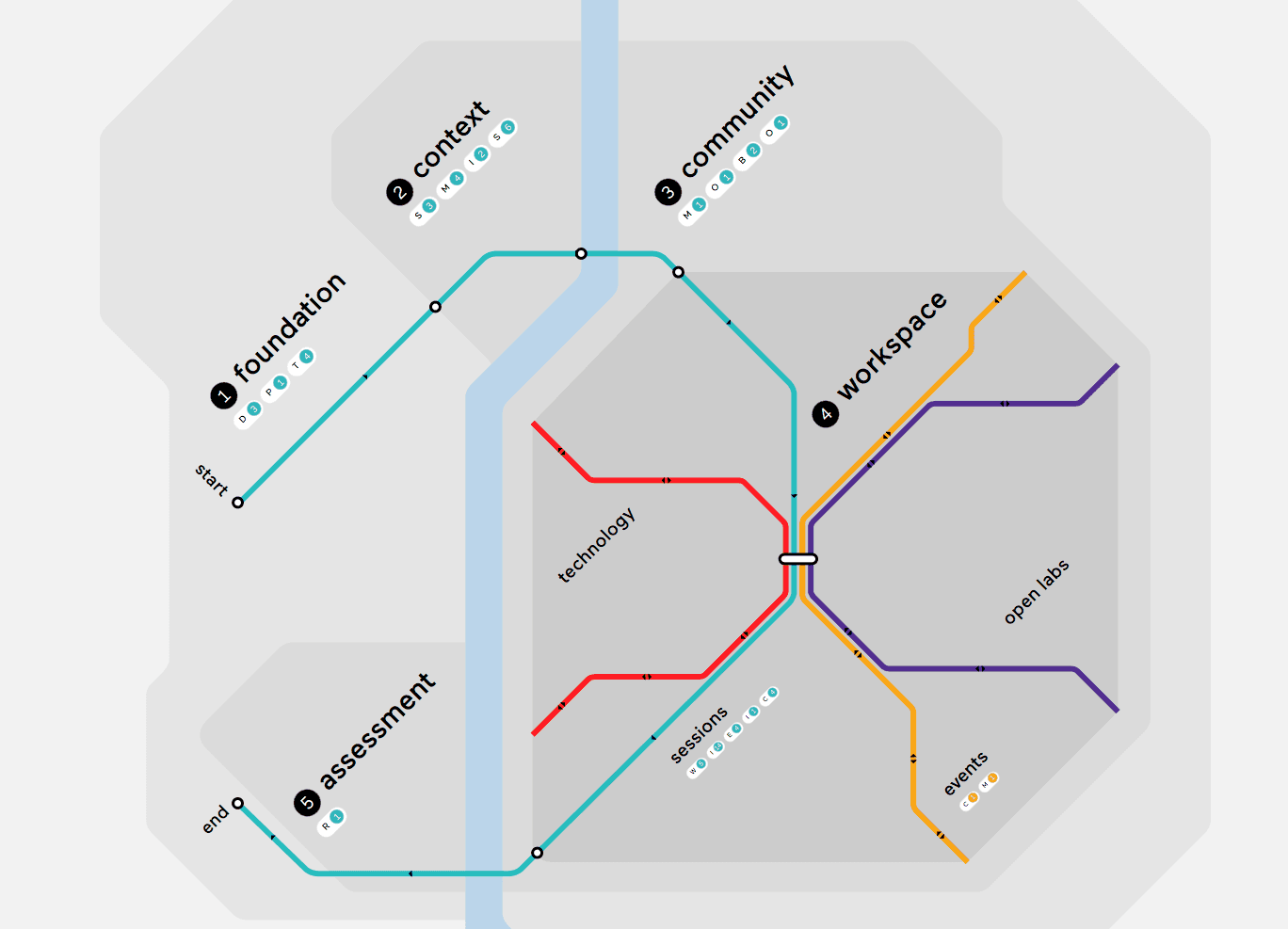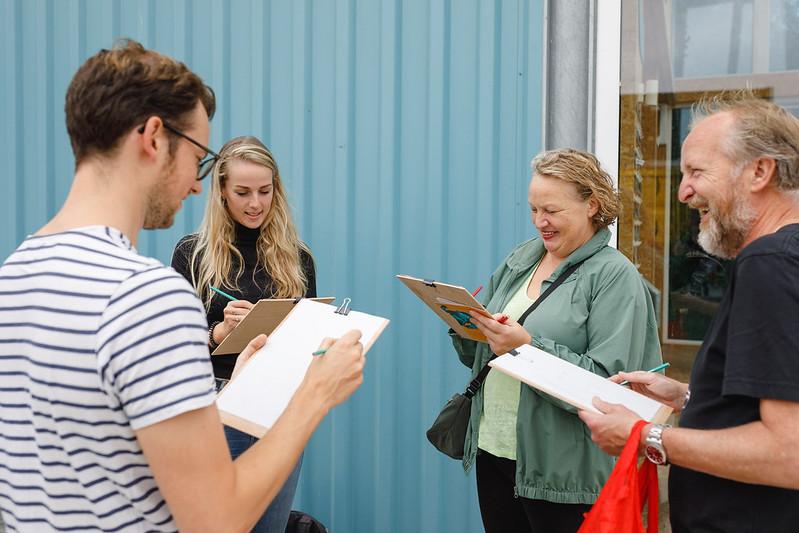Waag is developing the Co-creation Navigator, a guide for new co-creation facilitators. But what is co-creation? How can the Co-creation Navigator facilitate this? These were two of the questions discussed during a first workshop, when the floor was open to people who were experienced with co-creation and interested in sharing their experiences.
The discussion was lively and very useful, especially for me personally. For my master thesis I will be working with Waag to design a system that can support new facilitators in learning soft skills. This is still very broad, and as my thesis progresses, the scope of the project will be focused.
Finding a definition
During the first hour, we explored the field of co-creation. To do this, first a definition of co-creation needed to be found. A working definition was proposed by Sandra Gevaert from the Art of Hosting:
"Co-creation is a deep dive into the essence of a question together with all parties involved in this question, making space for what wants to emerge as a new solution or idea. Inviting people to let go of their individual interests and wishes as such and connect to their shared values and beliefs on a deeper level. Trusting there is something in the middle that is bigger than each of the parties by itself and there is something about to evolve that none of them could have created by themselves. By doing the research and experiencing the whole process together, as a collective one opens the space for something completely new to emerge. […] This is daring and challenging. And demands a more open mindset and inclusive world view."
To go from this one definition, to exploring the whole field of co-creation, this term was placed on a map of which the axes we discussed. Other terms were then placed relationally to the axes and the other terms. This exercise was a way of guiding an open conversation, and by no means ended in a definitive field. The result can be seen below (click for a larger image):

The Navigator
The second part of the evening was focused on the current version of the Co-creation Navigator, and what still needs attention in its development. The discussion that burst forward brought a lot of interesting information and opinions to light, a few of the themes that were discussed are summarized below.
Facilitation – As a facilitator of co-creation, a lot of attention is necessary for the process of co-creation. Facilitation is not about designing an instance (session) of co-creation, it is about designing the whole process. Part of this is being able to determine what the preconditions are for co-creation and to design for their success. Some of the preconditions mentioned during the evening were an awareness of these preconditions, how to manage expectations, independence and flexibility. Furthermore, the need to guide new facilitators how to design the evaluation of the session while designing the sessions was also mentioned.
Community – The navigator can become a community of co-creators in which we can support each other. A place where experiences can be shared, collaborations can flourish and validation can be found.
Experience – Most of all, the participants raised serious questions on whether it would work to teach or guide new facilitators through the process of co-creation through an online system. In basis, this is about soft skills that need to be experienced to understand them, therefore it is going to be a big challenge to design a system that can help new facilitators learn these soft skills. In this, the use of reflective questions at points in the system was offered as a step in the right direction. Warnings or reflection interventions would need to be designed meticulously.
To keep exploring co-creation at a facilitation level, we continue our workshops in November.


